Our BRAND Philosophy...an End to End commitment to Sustainability
Ecosystem-based Adaptation (EbA)
PHILIA's decision to start with coffee and cacao is beyond agriculture, it was a deliberate move to strategically respond to our commitment to sustainability. After air, WATER is the next most precious element and to sustain water supply we need to sustain the forest, especially the Rainforests. Water Security is the backbone of Food Security, Stable Economy and Quality Life.
Both COFFEE and CACAO are natives of the rainforests and if grown somewhere else will not produce the best taste notes. To respond better to climate change, we make the Ecosystem-based adaptation (EbA) imperative in our business. Our work with the Indigenous People and the upland farmers of coffee and cacao at the rainforests is our humble attempt to change mindset towards good environmental stewardship.

Our Agricultural Narrative…
Our sustainability starts from our agricultural narrative. Through years of collaboration, training and community development, our farmers have adhered to sustainable farming methodologies. We keep it ORGANIC and chemical free, a regenerative agriculture approach. This approach reverses the effects of CLIMATE CHANGE, restores the degraded biodiversity which eventually improves our water cycle. Maybe laborious but very much worth it to invest for the next generation and the environment.
QUALITY COFFEE and the best PURE Cacao starts from where it was grown and how it is being prepared. Single-Origin, responsibly sourced. The best and fine coffee and cacao products can ONLY be found at locations and local communities who have a deep tradition of coffee and cacao growing and roasting. PHILIA chose to work with communities who have been growing and roasting coffee and cacao for generations, this is why we worked with the indigenous communities of Blaan, Manobo and Teduray and the dedicated local farmers of where these high value products will best thrive, the rainforests.
For our COFFEE and CACAO, we worked primarily in Mindanao where the mountain elevation produces one of the best coffee taste notes in the world and the location of their respective rainforests have the ideal climate to produce a balanced amount of astringency and bitterness to CACAO taste notes. Indeed, our community partners, especially the indigenous people are our rainforests guardians.

Sustainable Operations…
Anchored on sustainability, we ensure that the preparations of our products up to its packaging capture the elements that are essential to keeping our biodiversity balanced and protected and does no harm to the people.
Most of the processes of making our products are by hand, from picking ONLY RIPE coffee berries or cacao pods to small batch roasting of their beans. Even the natural process of making Muscovado and Coconut Sugar is by hand.
PHILIA give premium importance to the process that embraces the human potential and gives the individual a voice that he/she might not have like the smallholder artisan communities. Like our pandan weavers in Laguna, Abaca fiber weavers of Albay and the wicker basket weavers of Bulacan, their handmade products affirm and continues the life of that heirloom art and tradition which amplifies that human voice they have. Each piece was crafted in the environment of joy, honor, and respect.

Our Packaging…
Not all papers are made the same.
PHILIA do not just use paper but chose to ONLY use FSC (Forest Stewardship Council) certified paper in our product packaging. Being FSC certified shows that your business complies with the highest social and environmental standards on the market.
We are INTENTIONAL in keeping our rainforest protected by giving you ONLY SHADE GROWN Coffee and Cacao products. We also ensure that other forests where we get the pulp for our paper are sustainable.
Also, we choose to support packaging that can be reused, recycled, and repurposed that is why our packaging boxes are made from biodegradable materials like that of our Pandan leaves for the boxes and bags, abaca fiber for the bags and the organic reed for our wicker basket. We also use muslin cloth bags for packaging. We may not totally eliminate the use of other non-sustainable packaging like plastics but we keep at the least amount as possible.

Fair trade…
Values equals value.
If we care what a coffee tastes like, we SHOULD also care how it was grown, being prepared and how it was traded. You cannot separate COFFEE and CACAO taste notes from its agricultural narrative and its origin.
Farmers and producers do matter.
PHILIA chose to remove the unnecessary costs of the multi-layered value chain to augment the income opportunities of the smallholder producers and to offer a reasonable product price for consumers, thus elevating more lives.
The cost of the multi-layered value chain jacks up the product price that the customers must pay. We acknowledged the complexity of the Philippines trade network (land, sea, air), and so we cannot totally move away from in-between players but we can limit them to what is only necessary. Also, the pressure to supply a committed volume to meet a price quota most often ripped off smallholder producers, and worse, destroyed product quality. Do not expect premium quality for thoughtlessly sourced products.
The base products we sourced from our smallholder communities especially the farmers and artisan communities are much higher than the trading prices. It is unfair to bargain with farmers or artisan communities of their labor, time and product of love. We buy bold because we want bold results.
To contribute to sustainable development, we must provide a better trading condition that secures the rights of the smallholders, empowers them, and gives them a fair chance to elevate their lives.

